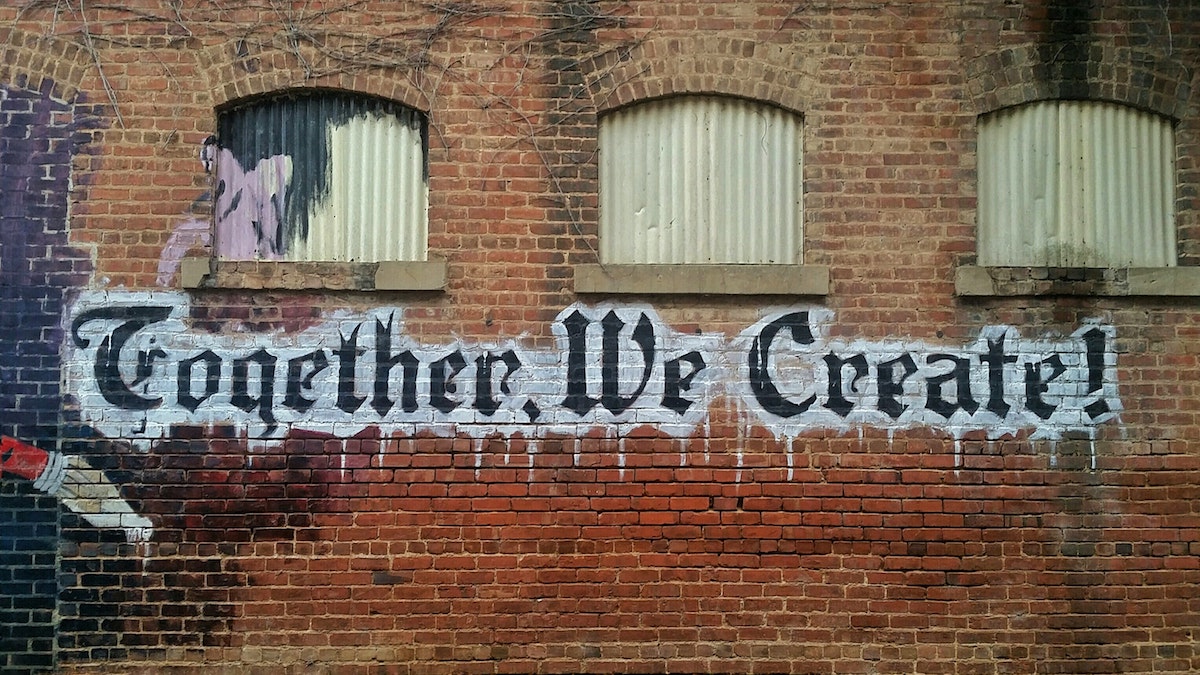The Good Guys of Local Politics, and How They’re Using Social

I walked out of City Hall this week more encouraged than ever about the opportunity for digital and social media to benefit civic politics, and I had the research to back it up.
Local leadership is something that I’ve always been interested in, but short of a few stand-out examples, the digital revolution may seem to have all-but left our politicians behind.
In our most recent client engagement we were tasked with working directly with the Staff, Councillors, and the Mayor of a major Canadian municipality to elevate the way that they are able to communicate with the people of their city (I’ve chosen the keep the specific city under my hat for now as they implement the work that we did together). To equip ourselves, and our clients, we did a considerable amount of research into how local leaders around North America are using digital media to benefit both their own campaigns, and their cities as a whole.
I wasn’t sure quite what to expect when I first entered the building. Were the clichés about the callous, disinterested politician true? Were they fully aware of the opportunities available to them, stubbornly choosing not to adapt, or was it just too much to ask for a Councillor/Mayor to run a city and tweet about it at the same time?
What I found inside was a group of intensely curious, ambitious people who were well aware of the potential that digital and social offered them, but feeling under-equipped to take advantage. The biggest hurdle that I found standing in their way was a question, and it was the same for just about everyone: Why will people want to follow me?.
Of course, the answer to the question will be different for every leader, but fortunately I had research in my back pocket that showed that not only was it possible, but there were hundreds of local leaders across North America who are providing value to their cities in some very simple ways.
Inspiring Skype discussion tonight with the fantastic @Ocasio2018! My good friend @ChiOnwurah was over for dinner so joined in our three way thinking about a progressive & innovative economic strategy for the 21st century. What else can one wish for on a Sunday night? pic.twitter.com/QS2QjObMNo
— Mariana Mazzucato (@MazzucatoM) July 22, 2018
Perhaps not surprisingly, I’ve heard that same question come up when discussing social media with leaders in just about every sector, so my hope is that our findings will be helpful regardless of the types of organization that you lead.
We had looked at some of the most prominent social media politicians, categorized them by the type of value that they were offering, and then applied that same model to increasingly less well-known leaders.
The result that we found was crystal-clear: Every local leader who was regularly creating value (as measured by Meaningful Engagement) fell into one of our 3 Frameworks of Political Social Media:
1. Educate
Many of the most successful figures base their careers — and therefore their social media platforms — on a mission to bring a specific message to the voters. An Educate framework is the right fit for a person who believes strongly in a cause and whose primary value to offer is information in a way that will get noticed.
One notable example that we found was then-Mayor, now-Senator Cory Booker of Newark, New Jersey. Mayor Booker identified early in his career that the young people of Newark were chronically under-educated on the subject of civic politics. Political Education became his Reason to Follow across his social channels, and he built up a powerful platform based on its content.
Beyond content itself, the Educate framework gave Mayor Booker an easy way to have impactful bi-partisan conversations, and get himself onto talk shows, podcasts, and other media opportunities. No one wants to host the Mayor who’s there to push his agenda, but everyone wants to hear from a person on a mission to better the city in a very specific way.
Another example of the Educate Framework includes:
Councillor Andrea Reimer (Vancouver) who educates and advocates about income disparity, education, and the Downtown Eastside.
2. Inform
Social media provides an opportunity for dramatic transparency, and people like Edmonton’s Mayor Don Iveson have embraced it as a way to keep people in the loop about what’s going on. Inform content is created in the moment and is shared not because of the message that’s being pushed out, or because of the value to the author, but because it will be helpful for the audience to stay in the loop about what’s happening in their local governments.
Twitter was made for this type of content so, not surprisingly, it is the platform of choice for most politicians.
People who follow Mayor Iveson and leaders like him do so because they want unfiltered, real-time updates about the issues that matter to them in their cities. The hardest part for many people is that “unfiltered” bit. The difference between a series of press releases and an unfiltered stream of information is the difference between an account that goes somewhat unnoticed, and one that communicates with as much as 90% of the city’s population on a regular basis like ex-Mayor Kasim Reed of Atlanta.
Mayor Reed was an early adopter of social media, and he used it to have regular real-time conversations with his city’s population. He ran micro-campaigns like #59SecondsWith59 where he (the 59th Mayor) would create a 59-second video to answer any questions that people had for him, and he didn’t just cherry-pick the easy ones.
What an incredible journey the past eight years have been. Serving as your mayor has been the honor of my life. Before we close our time together, I’m going to answer some of your questions. Let’s go. #59secondswith59 pic.twitter.com/p21liW8QOV
— Kasim Reed (@KasimReed) January 1, 2018
3. Elevate
Sometimes, as leaders, the story is not about us. Sometimes the best way that we can deliver value is by lifting up the stories and people who are making a difference in their communities.
Our third framework consists of leaders who used their accounts to Elevate through content, and in many cases, they barely showed up in their own posts.
Effective Elevate accounts do more than simply re-share or retweet informational content. As we can see with Winnipeg’s Mayor Brian Bowman, sometimes the best stories are waiting just under the surface and you have to go out and get them.
Earlier this year, Mayor Bowman put out a call to the city – he wanted to hear from the young people of Winnipeg about what they’d do if they were put in charge. Over the next few months, hundreds of parents and kids posted ideas using #KidMayor. Their Mayor thoughtfully responded to (nearly) every one, and shared some of them with his followers. Several submissions were invited to City Hall for lunch, and one was picked to sit in as Mayor for the day.
It doesn’t have to be a specific hashtag, however. In the case of Calgary’s Mayor Nenshi, he shares regular content about the non-profits, entrepreneurs, and private individuals who are making a difference in their city.
The Elevate framework is used in a variety of different ways, including Chicago’s Mayor Rahm Emmanuel’s “Chicago Stories”, and Vancouver’s own Mayor Gregor’s campaign to #SaveTheRio which included a clever shout out to Mr. Deadpool himself.
Hey @VancityReynolds, can you pop over to @RioTheatre on Monday for the world’s first #Deadpool double bill? Popcorn and local beers on me… #SavetheRio https://t.co/XV6ZhMvKW8
— Gregor Robertson (@MayorGregor) June 23, 2018
As many amazing examples as we found, we found significantly more political leaders who were spinning their wheels, creating content that was noticed by few, and engaged with by fewer. The thing standing between those accounts and the ones making effective use of the channels is often not that the best are doing more, it’s that the ones worth following are clear on the value that they’re offering and they deliver on it consistently.


